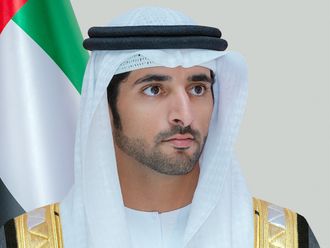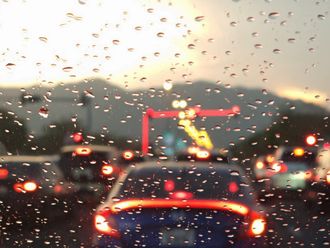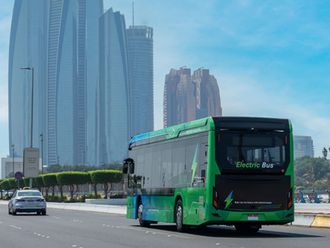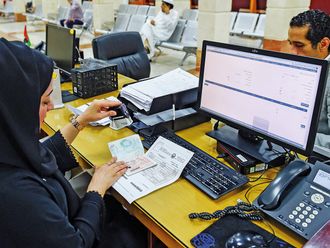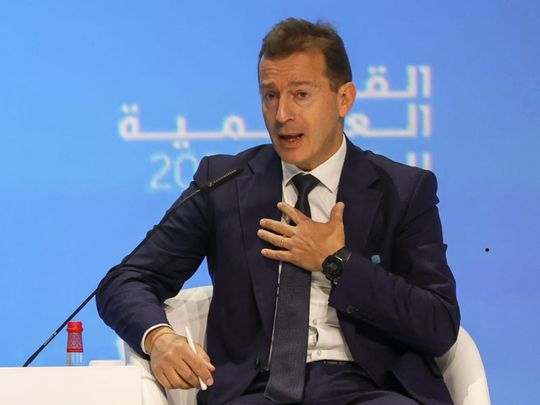
Dubai: The latest Boeing 737 MAX 9 crisis that shook the global aviation industry last month was a ‘humbling event’ for the American plane manufacturer’s principal rival, Airbus, said its CEO, Guillaume Faury.
Boeing’s recovery from the near-disaster of a door panel flying off a 737 MAX 9 jet mid-flight, operated by Alaska Air, will take years as the company attempts to rebuild its reputation. Airbus is working with stakeholders to ensure something similar does not happen again, irrespective of the kind of aircraft.
Speaking at the World Government Summit in Dubai on Monday, Faury said, “With our competitor and rest of the industry, we share the objective of safe flights and safe modes of transportation for aviation. It is never good when an incident happens, whatever the plane type.
Next steps
“This incident makes us very humble. We are thinking again (and again and again) about what we should be doing to not be in that situation. Are we well protected (from such events)?
“And the fewer accidents we see, the less acceptable every single accident. The bar is certainly being raised, and that’s good for the safety of passengers.”
On whether Airbus has revised its safety protocols following the Boeing incident earlier this year, Faury said, “We are always challenging ourselves on what we do, on what we don’t do, and what we should be doing differently to try to get better and we take learnings from everywhere.”
Learn from mishaps
Faury said that Airbus strives to learn from mishaps, what’s happening in other industries, on innovations, and constantly discussing with regulators. “We are looking at trends in the industry, what’s happening with digitalisation and what it enables, we are constantly review what’s challenging and that’s the role of governance in a company.
“We are in a very fast-changing world, and you need to be constantly reviewing and challenging yourself,” explained Faury.
Juan Carlos Salazar, Secretary General of the International Civil Aviation Organization (ICAO) – the specialised agency of the United Nations for civil aviation that sets global standards and policies – said the agency is working on policies to ensure aviation continues to remain the safest mode of transportation.
“Whenever there is an incident or worse, even an accident, these global standards ensure aviation continues to be the safest mode of transport. We set global standards that each member states follow,” said Salazar.
Aviation emissions
Faury and Salazar were at the WGS in Dubai to discussion the impact of the aviation industry’s carbon emissions on the planet. In late 2022, ICAO member states adopted a long-term global aspirational goal (LTAG) to achieve net zero carbon emissions from international aviation by 2050.
According to the ICAO chief, aviation accounted for 2 per cent of global energy-related CO2 emissions.
Faury said, “Two per cent is one giga-tonne. We don’t like to think (2 per cent) as something small or not meaningful. We want to take our share to 0 per cent by 2050. I am absolutely convinced that aviation is a force for good for humanity, but global warming is a reality and we need to deal with it.”
On how the aviation industry can cut its emission levels, Faury said there are 25,000 commercial planes flying around the world, and only 30 per cent of those planes are of the latest generation.
“When you replace an old generation plane with a new one, you are reducing fuel burn by 20-40 per cent. A lot of the backlog we have is for replacement,” he added.
The planes being sold right now by Airbus are capable of 50 per cent Sustainable Aviation Fuel (SAF) – a ‘green’ liquid fuel currently used in commercial aviation which reduces CO2 emissions by up to 80 per cent.
“Less than 1 per cent of the fuel being used by airlines today is SAF. We are only at the beginning of that transition,” said Faury.



